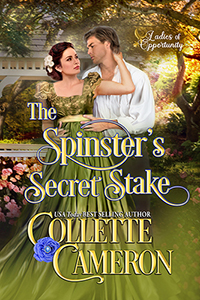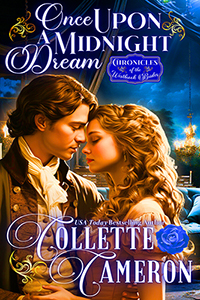What a thrill to have Regina here today talking about her research for A Touch of Love
She’s giving away a signed, print copy to one lucky commentor!
When writing A Touch of Love, I spent countless hours researching the history of Jews in the Regency era for I planned to include several Jewish characters, who were not the stereotypical moneylenders, but to do so efficiently, I had to examine the changes in the European Jewish population from about 1750 onward. Therefore, I would like to spend some time today on the Jewish Enlightenment, which occurred during the later part of the 18th Century.
The first large Jewish flock to know both the encroachment of Enlightenment and a social movement leading in various degrees to cultural modification and conversion was found in Berlin, Germany. There was a progressive relationship between the intellectual proponents (the Enlightenment movement, educational reforms, and, later, religious reforms) and social changes (alterations in the language {for example, adding English to the Jewish schools and to the services, as well as adding the language of the country in which the Jews resided}, the mixing of social groups, some change in the “costumes” worn by the Jewish population, and to a smaller extent to baptism).
The transformation of the Berlin (Ashkenazic) community in the late 18th and early 19th Centuries was groundbreaking in its scope and its influence. They provided the “model” for those Jewish communities that followed. Jewish historians regarded the “Berlin Jewry as a paradigm for the modernization process. Although the Jewish Enlightenment and the Taufepidemie (epidemic of baptisms) were not the monopoly of any social class, there can be little doubt that they had a more rapid and more extreme influence on the Jewish upper classes of Berlin than on any other group.” (Frances Malino and David Sorkin, Profiles in Diversity: Jews in a Changing Europe, pg. 183)
The Seven Years War (1756-1763) was the impetus for the modernization of the Berlin Jewry. Until those war years, the Berlin Jewry was very much like the remainder of the Ashkenazic communities: Deep-rooted traditions controlled their interactions within the community and outside of the community. As late as 1749, a Berlin Jew was denounced to the government by Veitel Heine Ephraim {Jeweller to the Prussian Court and Mint Master under Prussian Kings Frederick William I and Frederick the Great}for shaving off his beard. (L. Ladnshuth, Veitel Heine Ephraim als Anwalt des Judenbarts) “The community minute book in 1729 shows the observance of stringencies in ‘kashrut’ (dietary law) not found in the countryside. The institutions of the community were traditional indeed.” (Malino and Sorkin)
The Berlin Jewry differed from many other communities in its wealth and with the population boom of Berlin during the late 1700s. The Seven Years War marked the rise of intellectual pursuits in Berlin as the works of Mendelssohn were first published in 1755. Also, with the war, “the newly enriched ‘coinage’ millionaires of the war period gained positions of influence. In 1754 the richest 5% of Berlin Jewish taxpayers paid 21% of the communal taxes…After the war, the top 5% were paying over twice as much (43%).” (Malino and Sorkin)
The Jews also benefited from an improved legal status. Despite his personal dislike for Jews, in general, Frederick the Great rewarded those Jews, who proved useful to the Prussian economy, with both civic and economic privileges. The King created a new “legal” category for Jews: “General Privilege,” which exempted them from the discriminatory laws practiced against the Ashkenazic communities.
By the 1760s, the newly rich Jewish families not only kept their “traditional” homes in Old Town, but they also purchased houses on some of Berlin’s best streets and outfitted them with fabulous art collections, private synagogues, and baths (important to the Jewish faith but so much so the general population at that time). These purchases led to an expansion into both business and residential properties. Changes also occurred in how the Jews went about their business. Many began to dress in contemporary style, without a beard. They learned to write and speak High German, rather than Yiddish. Jewish children were educated in the ways of Western culture, in addition to the Jewish religion.
They also became the patrons and the protectors of the Enlightenment. The Berlin Jewry’s lifestyle changes encouraged an intellectual movement, which incorporated non-Jewish elements. “The Enlightenment was an ideology of rationalism and social reform, not merely an elegant and acculturated style of living.”
So what do these early beginnings of assimilation have to do with the Jews in King George III’s England? “This pattern can be summed up rather simply. The first generation rapidly came into great wealth and influence. The second generation was raised in great luxury and cultural refinement. Many of its members were prominent in communal affairs and in the Enlightenment. The third generation was marked by the breakdown of communal ties and the loss of the family fortune. Conversion was only one manifestation of a more general turn away from traditional values, which was evident also in divorce, bankruptcy and dissipation. This is not to deny that, in some cases, conversion was the result of sincere conviction. In most cases, however, the desire for personal advancement, prestige or an advantageous marriage was a stronger motivation.
“Secondly, the period 1770-1820 was also atypical, since it was marked, at least before 1806, by an extraordinary degree of social mixing – including marriage – between upper-class Jews and Prussian nobles and intellectuals. Such marriages were far more common in this period than they were to be later. Even more important was the pioneering situation of enlightened Jews at the time. There were no set models for Jews abandoning tradition, whether by neglecting kashrut and the Sabbath, mixing socially with Christians, moving from the Jewish district, or even playing the piano and collecting art. They did not have a sure idea of what could be reconciled with Judaism and what could not, since they lacked models of an acculturated type of Judaism such as religious Reform or of modernized Jewish cultural and social reforms. Once these forms were established, later generations felt less tempted to abandon Judaism altogether as they abandoned tradition. For this reason and others, rates of conversion to Christianity as well as of intermarriage diminished in the generations after 1830 even among the elite.” (Malino and Sorkin, pp. 200-201)
Blurb:
“The first fully original series from Austen pastiche author Jeffers is a knockout.”
– Publishers Weekly
The REALM has returned to England to claim the titles they left behind. Each man holds to the fleeting dream of finally knowing love and home, but first he must face his old enemy Shaheed Mir, a Baloch warlord, who believes one of the group has stolen a fist-sized emerald. Mir will have the emerald’s return or will exact his bloody revenge..
Aristotle Pennington has groomed SIR CARTER LOWERY as his successor as the Realm’s leader, and Carter has thought of little else for years. He has handcrafted his life, filled it with duties and responsibilities, and eventually, he will choose a marriage of convenience to bolster his career; yet, Lucinda Warren is a temptation he cannot resist. Every time he touches her, he recognizes his mistake because his desire for her is not easily quenched. To complicate matters, it was Mrs. Warren’s father, Colonel Roderick Rightnour, whom Sir Carter replaced at the Battle of Waterloo, an action which had named Carter a national hero and her father a failure as a military strategist.
LUCINDA WARREN’s late husband has left her to tend to a child belonging to another woman and has drowned her in multiple scandals. Her only hope to discover the boy’s true parentage and to remove her name from the lips of the ton’s censors is Sir Carter Lowery, a man who causes her body to course with awareness, as if he had etched his name upon her soul. Fate cruel twists have thrown them together three times, and Lucinda prays to hold off her cry for completion long enough to deny her heart and to release Sir Carter to his future: A future to which she will never belong.
Excerpt: Lucinda and Sir Carter thought their stories separate, but they soon learn Fate has brought them together three times. This scene comes from the first peeling away of the “layers of the onion,” so to speak.
It had taken their small party several hours to reach Blake’s Run. Lucinda had ridden in the back of the wagon, tending to Baron Blakehell and Mr. Beauchamp. Her uncle and Lord Lexford had ridden ahead, leading the two prisoners, who were tied to their saddles; therefore, when Lord Worthing turned the wagon into the entrance circle, the baron’s household awaited their master’s return. The baroness stood wringing her hands while groomsmen and footmen ran along side the wagon. Lord Worthing brought the wagon to a halt and jumped down to assist Lucinda from the back.
“Oh, my Dear,” Lady Blakehell exclaimed as she caught Lucinda up in a tight embrace. “How may I ever thank you? Lord Charleton has shared how brave you were.”
In a daze, Lucinda asked, “Has someone sought a surgeon? The baron shall require more than I could provide him.”
Her uncle appeared at her side. “A groom has gone for the magistrate and the surgeon. You must come with me; Lady Blakehell will see to the baron.” He slipped his arm about her waist, and Lucinda gave herself up to the comfort of his concern. “You require tender care, and I mean to see to your recovery.”
“You, too, Sir. You should find your bed and a much needed rest,” she murmured.
“After you are safe within,” Charleton encouraged her forward.
Lucinda glanced over her shoulder to where Lady Blakehell hovered over her husband. “Is there any word from Sir Carter?”
Charleton followed her gaze. He whispered close to her ear. “It is a good sign that Hellsman, Godown, and Sir Carter believed Woodstone. Lady Hellsman disappeared earlier today. Lord Lexford and I arrived to find a household in complete chaos. The baron’s return will focus the Blakehell staff and the baroness on the immediate future. It will provide the gentlemen with time to perform their duties.”
With an expression of impatience, Lucinda said, “Sir Carter’s investigation has brought tragedy to his family. The baronet will not rest until he rights this wrong.”
The earl’s hand stilled their progress on the entrance steps. He directed her from the activity. “Although I have no desire to bring you more pain, there is something of import of which you should be aware.”
Lucinda’s heart beat agonizingly fast. “I am not certain I am strong enough for more intrigue.”
The earl caressed her cheek, and Lucinda leaned into his loving touch. It was quite surreal to look into Gerhard Rightnour’s eyes. She saw her father’s countenance, and the lines blurred. She was determined to think of the man as her uncle–not to betray Roderick Rightnour’s devotion–but as she looked upon the earl, the word “father” filled her mind. “I would postpone saddling you with more responsibility if it were possible. As your dearest family, I would gladly shoulder all your troubles; yet, information regarding Captain Warren has surfaced.”
Lucinda clung to his thick fingers, so like those of the colonel’s. She shut her eyes and drew in a deep breath. “Tell me quick.”
She did not miss how Charleton’s lips tightened in self-chastisement. “In my foolish need to protect you, I have presented you a disservice, one for which I must beg your forgiveness.” The earl swallowed hard and shifted his shoulders in that characteristic slant, which spoke of his resolve. Lucinda found it odd she had come to know Charleton so quickly. “When you stormed from my rooms, I broke my promise to you. I continued to read Roderick’s papers. Please believe me, I meant only to shelter you. I feared my brother’s papers held other secrets, which would bring you more anguish. I could not bear the pain upon your lovely countenance.”
Lucinda paused, shepherding her thoughts. “I am not angry, Sir. It is strange to have someone who wishes only my benefit, but I am pleased by your concerns. However, I plead for you to share what you have discovered of Captain Warren.”
The earl nodded curtly. She admired how he never denied his responsibilities. “Roderick speaks of discovering how Mr. Warren had come to be involved with a group of unscrupulous men. The baronet’s investigation has revealed Cyrus Woodstone served as a purveyor of European artwork to English collectors. My brother’s papers show Captain Warren supplied Woodstone with many pieces.”
“I knew your late husband, and I know your lover,” her abductor had taunted. Lucinda shivered with dread. “Did Matthew’s parents know?” Questions raced through her mind. “Why did the colonel not put a halt to Captain Warren’s manipulations?”
“Because, like me, Roderick loved you. He hid the captain’s perfidy to preserve your reputation.”
Lucinda considered Charleton’s assertion. “I thought Papa displeased with me,” she confessed. “I could never understand why the colonel had turned so cold; I thought him grieving for Mama. He was oddly unrepentant of his poor opinion of Mr. Warren as an officer after my husband’s untimely death. It all appears so reasonable in hindsight. Keeping Mr. Warren’s secret must have eaten at Papa’s soul. He was always so honorable.”
The earl directed her steps to the still open door. Blakehell’s men had carried the baron to his quarters, and Viscounts Lexford and Worthing waited. “We will speak more of this when we are alone,” her uncle whispered.
“Lady Blakehell has asked her cook to set out a light meal,” Lord Worthing indicated. “Lexford and I mean to wait for the magistrate. If Hellsman and Sir Carter have not returned by the time we finish with the local authorities, we will follow them to Dove Dale.”
God bless the servants. Lucinda glanced about the main hall. Lady Blakehell trailed her husband to his quarters, and the servants appeared quite preoccupied with their duties. “I am famished. I have not eaten since last evening. If you will excuse me, I shall make myself more presentable. Shall I ask Mr. Malcolm for rooms for you and Lord Lexford to refresh your things?”
“I have previously addressed our needs,” Lord Worthing assured. “It is quite common for Derby neighbors to call on one another.”
Lucinda nodded her understanding: She held no status in Blakehell’s home. It was a sobering reality. She often thought her connection to Sir Carter placed her in an elevated position among the baron’s household, but she was nothing more than an inconvenient guest. “Then I shall see to my ablutions.”
Lord Worthing caught her arm. “May we speak privately?”
She turned to see her uncle and Lord Lexford entering the morning room. “Is something amiss, Lord Worthing?”
The viscount led her from the way of servants crisscrossing the entrance hall. He spoke softly. “I have…on our journey…I have been considering how efficiently you treated Baron Blakehell’s wound. How adept you were in the crisis.”
Despite wondering how to respond, Lucinda held Worthing’s gaze steadily. “My mother and I often assisted the camp surgeon.”
Lord Worthing’s countenance was ashen, his eyes narrowed. “I do not speak of generalities, Mrs. Warren. I speak of a particular wound. Of a particular man. Of the aftermath of Waterloo.”
Lucinda’s cheeks reddened, but she managed to say, “I fear I do not understand, my Lord.”
The viscount’s shoulders stiffened, and he spoke earnestly. “Do not think you will dissuade me with mild protestations, Mrs. Warren. You were in the hospital where the military brought Lowery after the baronet replaced your father upon the battlefield. Darek Merriweather spoke of the boy who had followed Sir Carter’s litter to Brussels.” Lucinda’s knees buckled, and Worthing caught her arm. “Sir Carter’s man described how the boy had contributed to the removal of the bullet from Lowery’s leg.”
She thought to deny the viscount’s assertions, but the words would not come. “Lieutenant Lowery had been cut down because he meant to save me from a French cavalryman. My father had perished when he protected me during the initial charge. I could not permit Lieutenant Lowery to die also. Please, you must not speak of this to the baronet.”
“Lowery is unaware of your involvement?” Worthing said in incredulity. “Do you not understand the baronet has suffered for years with thoughts of having failed the boy from the battlefield? The baronet believes the boy–you–died at Waterloo.”
Lucinda schooled her expression to dispassion. “If Mr. Merriweather knew of the boy at the hospital, why did Sir Carter’s man not share that particular fact with his master?” she accused.
“To my knowledge, no one beyond the Realm knows of Sir Carter’s personal hell.”
“Not even his family?” A deep, sickening dread spread through Lucinda’s veins.
Lord Worthing shook his head in denial. “No one other than those with whom he served.” The implications of the viscount’s assertion played heavily against her chest. “You must tell Sir Carter the truth–to release the baronet from his nightmare.”
“I cannot,” she protested. “It would destroy everything. Do not ask me never to know Sir Carter’s benevolence again.” Before she could say more, the sound of running feet upon the stairs drew her attention from the viscount.
“Ma’am! Oh, Ma’am!”
She instinctively opened her arms to Simon. The child rushed into her embrace, and Lucinda closed her eyes to the pleasure of holding the boy. “I am well,” she whispered as she rocked him. She had never permitted herself to care for the boy, but somehow Simon had snuck beneath her defenses.
“I thought,” he said on a watery sob. “I had lost you, too.”
“I apologize, Mrs. Warren.” The maid came to a stumbling halt before her. “One of the grooms told Master Simon what occurred. He has been distraught with fear.”
Lucinda wiped Simon’s cheeks free of the tears with the sleeve of her dress. “It is well, Sarah. I shall return Simon to the nursery after he joins the earl and me in the morning room for a late night meal.”
Simon whispered loudly, “Could I not stay with you?”
Lucinda brushed the child’s hair from his forehead. “Would you like that?”
“I will protect you,” Simon declared.
“I could ask for no better knight,” she said sweetly. “Come. You will join the earl while I freshen my things. Then we shall have a treat together.”
Lord Worthing extended his hand to the boy. “I recall when my son Daniel was your age. He could eat at any hour. Let us permit the lady her privacy. I am certain Sarah will be happy to assist Mrs. Warren.”
“Would you, Sarah?” Simon asked hopefully.
“It would be my honor.”
Simon tugged on Lord Worthing’s hand. “Come. I wish to express my gratitude to Lord Charleton. He brought Ma’am home safely.”
Meet Regina Jeffers:
Regina Jeffers is the author of several Austen-inspired novels, including Darcy’s Passions, Darcy’s Temptation, Vampire Darcy’s Desire, Captain Wentworth’s Persuasion, The Phantom of Pemberley, Christmas at Pemberley, The Disappearance of Georgiana Darcy, Honor and Hope and The Mysterious Death of Mr. Darcy. She also writes Regency romances: The Scandal of Lady Eleanor, A Touch of Velvet, A Touch of Cashémere, A Touch of Grace, and The First Wives’ Club. A Time Warner Star Teacher and Martha Holden Jennings Scholar, Jeffers often serves as a consultant in language arts and media literacy. Currently living outside Charlotte, North Carolina, she spends her time with her writing, gardening, and her adorable grandson.
Twitter – @reginajeffers
Facebook – Regina Jeffers
(Books available from Amazon, Barnes & Noble, Books-a-Million, Joseph Beth, Kobo, and Ulysses Press.)
Awards:
The Phantom of Pemberley – SOLA’s Fifth Annual Dixie Kane Memorial Awards – 3rdPlace – Romantic Suspense
Darcy’s Temptation– 2009 Booksellers’ Best Award Finalist – Long Historical
The Scandal of Lady Eleanor – Write Touch Readers’ Award – 2nd Place – Historical Romance
A Touch of Grace – SOLA’s Seventh Annual Dixie Kane Memorial Awards – 3rd Place – Historical Romance
The First Wives’ Club – SOLA’s Seventh Annual Dixie Kane Memorial Awards – Honorable Mention – Historical Romance
Christmas at Pemberley– 2011 Booksellers’ Best Award Finalist – Inspirational Romance; Second Place, General Fiction, New England Book Festival
The Mysterious Death of Mr. Darcy – SOLA’s Eighth Annual Dixie Kane Awards – Honorable Mention – Romantic Suspense
Angel and the Devil Duke – SOLA’s Eighth Annual Dixie Kane Awards – 3rd Place- Historical Romance









